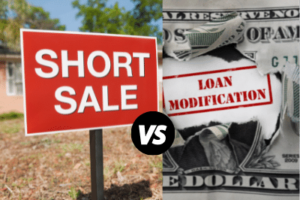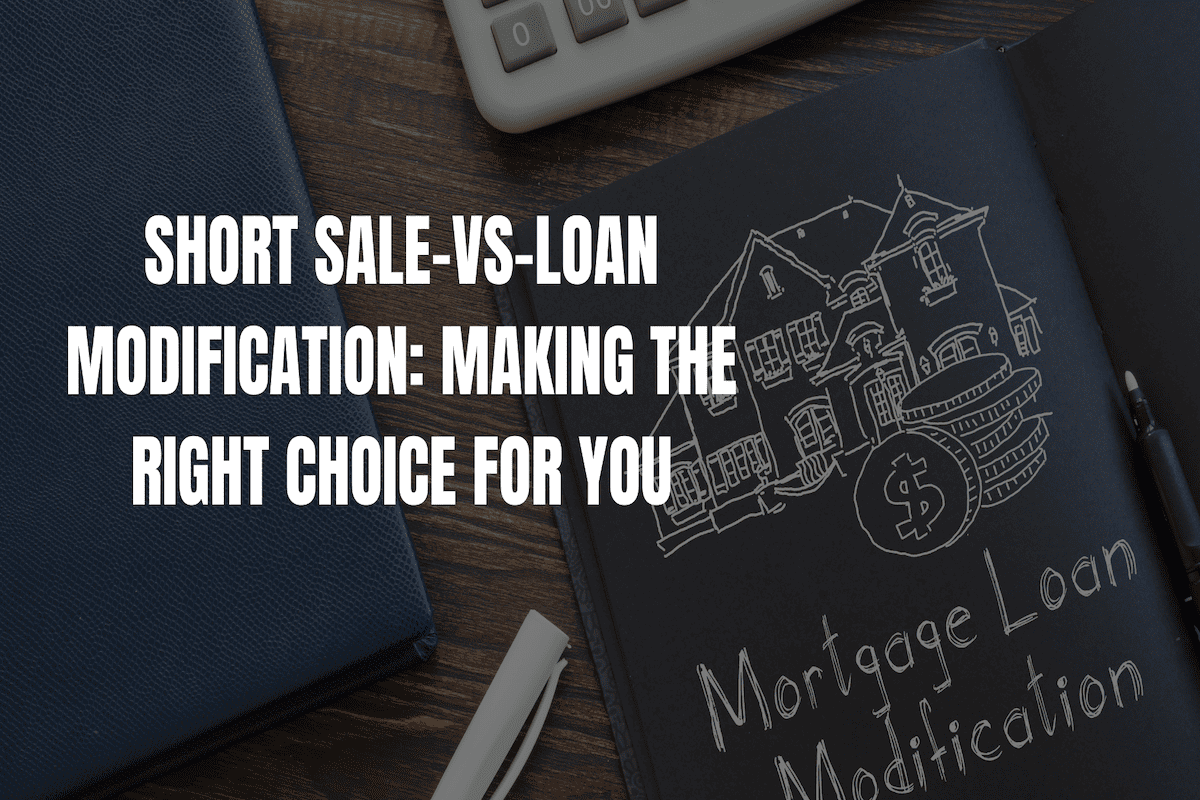In the realm of real estate and mortgage management, two terms often arise when homeowners face financial challenges: “short sale” and “loan modification.” While both options offer potential relief for individuals struggling to meet their mortgage obligations, they serve different purposes and entail distinct processes. In this blog post, we will delve into the differences between a short sale and a loan modification, helping homeowners make informed decisions based on their unique circumstances.
Short Sale: A Closer Look
A short sale refers to a real estate transaction in which the homeowner, in agreement with the lender, sells the property for less than the outstanding mortgage balance. This approach is typically pursued when the market value of the property has declined, and the homeowner owes more on the mortgage than the property is worth. The primary goal of a short sale is to avoid foreclosure and minimize the financial impact on both the homeowner and the lender.
Key features of a short sale:
- Financial Hardship: Homeowners pursuing a short sale are typically facing significant financial hardships, such as job loss, medical bills, or other unforeseen circumstances that make it impossible to keep up with mortgage payments.
- Lender Approval: A short sale requires lender approval, as the lender essentially agrees to accept the proceeds from the sale as full settlement of the debt, even if it falls short of the total owed amount.
- Credit Impact: While a short sale may negatively impact a homeowner’s credit score, it is generally less damaging than a foreclosure. The credit score may still be affected, but the homeowner can potentially recover more quickly.
Loan Modification: A Comprehensive Overview
A loan modification involves the restructuring of the terms and conditions of an existing mortgage to make the payments more manageable for the homeowner. This option is suitable for individuals who are facing temporary financial setbacks but have the potential to resume regular payments over time. Loan modifications aim to help homeowners stay in their homes and avoid the potentially dire consequences of foreclosure.
Key features of a loan modification:
- Financial Hardship: Similar to a short sale, a loan modification is typically pursued by homeowners experiencing financial difficulties. However, in this case, the financial troubles are expected to be temporary, and the homeowner seeks a way to regain stability.
- Lender Collaboration: The homeowner and the lender work together to modify the terms of the mortgage, which could involve reducing the interest rate, extending the loan term, or temporarily lowering the monthly payments.
- Credit Impact: While a loan modification may still have some impact on a homeowner’s credit score, it is generally less severe than a foreclosure or a short sale. A successfully executed loan modification allows the homeowner to maintain a better credit standing.
 Conclusion
Conclusion
When homeowners find themselves struggling to meet their mortgage obligations, it’s crucial to understand the distinctions between a short sale and a loan modification. A short sale involves selling the property for less than the owed amount, while a loan modification focuses on renegotiating the terms of the mortgage to make payments more manageable. Both options offer alternatives to foreclosure and aim to provide relief during times of financial hardship. Choosing the right path depends on the individual’s circumstances, long-term goals, and collaboration with the lender. Seeking professional advice from real estate agents, legal experts, and financial advisors can help homeowners make informed decisions that align with their best interests.



